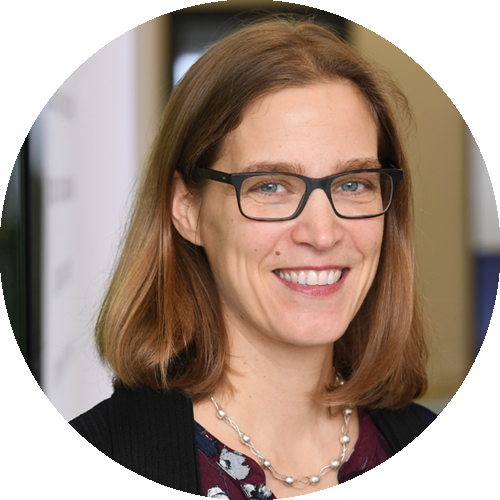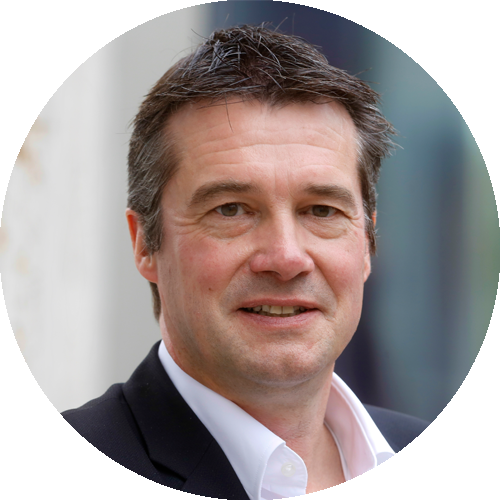- GU Home
- Research at Goethe University
- Profile Area Orders & Transformations

Mission Statement


Profile Area Spokespersons

The Profile Area 'Orders & Transformations' deals with the urgent social problems of our time. To me, working in this Profile Area is extremely exciting, since I am able to gain scientific insights into issues affecting us all. Analyzing these big issues requires interdisciplinary collaboration and the combination of different methods and insights.
Spokesperson of the Profile Area Orders & Transformations

“Where, if not at our university, which enjoys worldwide renown in this field, should empirically and normatively profound research be conducted into how and by what means the orders in which we live are changing? Doing so requires advanced research that combines different disciplines and thereby arrives at new questions and answers. I want to contribute to this effort, not least because I learn a lot in the process."
Rainer Forst (Political Theory and Philosophy),
Spokesperson of the Profile Area Orders & Transformations

Key Research Areas

Hence, the Profile Area stands in the characteristic tradition of Goethe University Frankfurt. Since its founding as a “citizens' university" with the aim of pursuing science independently of conventional political and cultural constraints, the university has cultivated a specific profile characterized by the spirit of enlightenment, criticism and progressiveness. While all scientific fields flourished as a result, the impact on the development of groundbreaking research foci in the social sciences, law, economics and the humanities was especially profound, extending far beyond the "Frankfurt School," which remains internationally influential until today. This spirit, based above all else on interdisciplinary cooperation, has survived: It is reflected not only in the research profile of the university as a whole, but even more so in the Profile Area "Orders & Transformations."
The Profile Area is backed by internationally renowned, externally funded alliances and connects highly decorated scientists, honored with many awards. It comprises two established research foci and several interlinked high-potential research areas.
Normative Orders
Financial Market Research
Coordinated Research Projects
DFG (German Research Foundation)
- RTG 2105 "Doing Transitions - The Formation of Transitions over the Life Course"
- RTG 2279 "Configurations of Film“
- RTG 2836 "Fixing Futures: Technologies of Anticipation in Contempofrary Societies "
- RTG 2852 "Standards of Governance" (with TU Darmstadt)
- FOR 2630 "GlobalCDA - Understanding the global freshwater system by combining geodetic and remote sensing information with modelling using a calibration / data assimilation approach" (with University of Bonn)
- FOR 2774 "LawFin - Foundations of Law and Finance"
- FOR 5173 "RISS -Reconfiguration and Internalization of Social Structure"
- FOR 5399 „MIIHD - Macroeconomic Implications of Intra-Household Decision Making"
- Kolleg-FOR 2932 "POLY - Polycentricity and Plurality of Premodern Christianities" (German link only)
Associations
- CRC 1053 "MAKI - Multi-Mechanisms Adaption for the Future Internet" (TU Darmstadt)
- CRC/TRR 266 "Accounting for Transparency" (Universität Paderborn)
- RTG 2050 "Privacy and Trust for Mobile Users" (TU Darmstadt)
- FOR 5230 "Financial Markets and Frictions - An Intermediary Asset Pricing Approach" (KIT)
Others
- Justitia Center for Advanced Studies (Alfons und Gertrud Kassel-Stiftung)
- “Wasteland Futures. Intergenerational relations in abandoned places across Europe“ (VolkswagenStiftung)
- “InterCare - Intergenerational care relations: Challenges and potentials for reconciliation of education and care in ageing knowledge societies“ (VolkswagenStiftung)
Distinguished individual Researchers
ERC Grants
- Advanced Grant "POLAR - Polarization and its discontents: does rising economic inequality undermine the foundations of liberal societies?" (Markus Gangl, FB 03)
- Advanced Grant "COOKIES - Economic Consequences of Restrictions on the Usage of Cookies" (Bernd Skiera, FB 02)
- Advanced Grant "CRYOSOCIETIES - Suspended Life: Exploring Cryopreservation Practices in Contemporary Societies" (Thomas Lemke, FB 03)
- Consolidator Grant "MaMiLabor - Macro- and Microeconomic Analyses of Heterogeneous Labor Market Outcomes" (Nicola Fuchs-Schündeln, FB 02)
- Consolidator Grant "Banking and Climate Change" (Tobias Berg, FB 02)
- Starting Grant "FARRIO - The Effects of Far Right Challenges on International Organizations" (Lisbeth Zimmermann, FB 03)
- Starting Grant "ChiParNet - The Interplay of Children's and Parents' Networks in Shaping Each Other's Social Worlds" (Lars Leszczensky, FB 03)
Emmy Noether Junior Research Group
Heisenberg Programme
- Fellowship "Space, Agency and Practices in the Postnational Constellation" (Daniel Lambach, NO)
- Professorship for Political Science, in particular Political Theory, History of Ideas and Theories of Economy (Thomas Biebricher, FB 03)
LOEWE Top Professorship
- "International Relations and Theories of Global Orders" (Nicole Deitelhoff, FB 03)
Leibniz Prizes
- 2018, Nicola Fuchs-Schündeln (FB 02)
- 2012, Rainer Forst (FB 03)
- 2010, Roman Inderst (FB 02)
- 2022, Marietta Auer (FB 01; Hon. Prof. at GU)
- 2019, Ayelet Shachar (FB 01; associated)
- 2014, Armin von Bogdandy (FB 01; Hon. Prof. at GU)
Institutions involved
GRADE Centers
- GRADE Aging
- GRADE Education
- GRADE Gender
- GRADE GPE (History, Philosophy, Anthropology)
- GRADE GSEFM (Economics, Finance and Management)
- GRADE Normative Orders
- GRADE Law
- GRADE RuTh (Religious Studies and Theology)
- GRADE Social Sciences
- GRADE Sport Sciences
- GRADE Sustain
Institutions of Goethe University
- CGC - Cornelia Goethe Center for Women's and Gender Studies
- IMFS - Institute for Monetary and Financial Stability
- IZO - Interdisciplinary Center for East Asian Studies
- NO - Center Normative Orders (German link)
- WMZ - Wilhelm Merton Center for European Integration and International Economicn Order
- ZIAF - Center for Interdisciplinary African Studies
Cooperating Institutions
Institutes of Non-University Partners
- PRIF - Leibniz Peace Research Institute Frankfurt
- SAFE - Leibniz Institute for Financial Research
- DIPF - Leibniz Institute for Research and Information in Education
- MPI AE - Max Planck Institute for Empirical Aesthetics
- MPI AÖRV - Max Planck Institute for Comparative Public Law and International Law (Heidelberg)
- MPI LHLT - Max Planck Institute for Legal History and Legal Theory
- ZEVEDI - Center Responsible Digitality
- IfS - Institute for Social Research
- SFI - Sigmund-Freud-Institut for psychoanalysis and its applications
- Studying at Goethe University
- International applicants
- Faculties
- Overview of study programmes
- Programme for refugees
- GRADE
- Goethe Business School (continuing education)
- Research at Goethe University
- Scientific news
- Goethe Welcome Center (for international researchers)
- Collaborative research projects
- Individual research
- Visiting fellowships
- Endowed chairs
- About the University
- News-in-brief
- University administration
- Campus locations
- Campus life
- University archives (German)
- Rhine-Main-Universities











